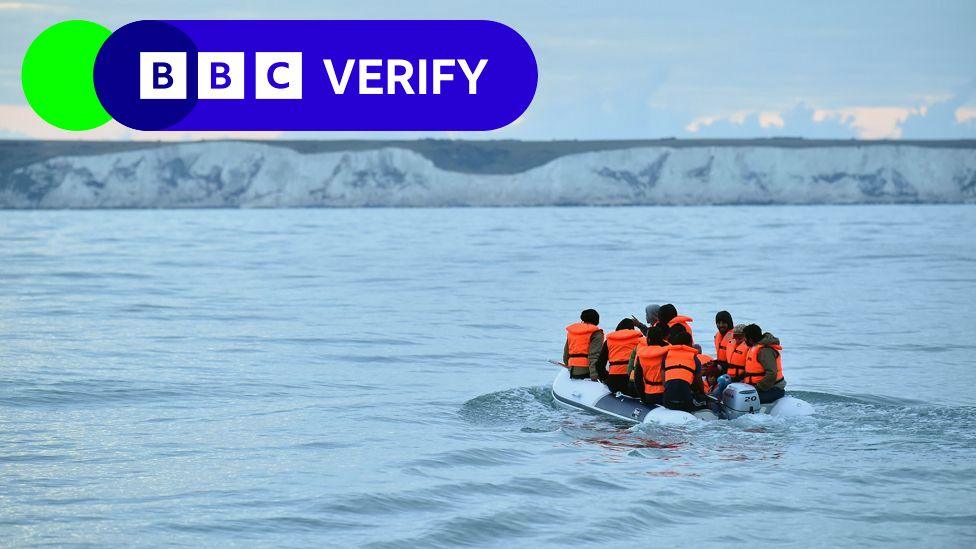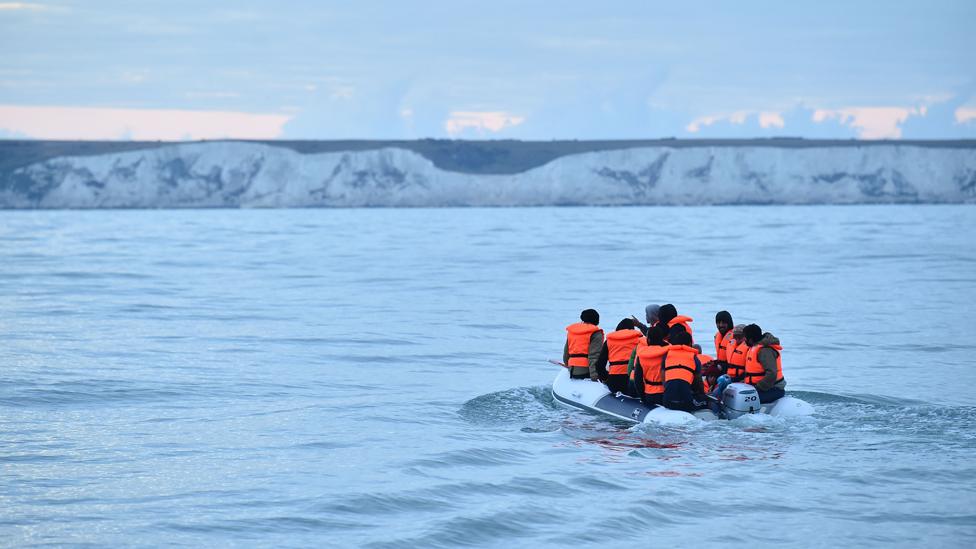UN says 2024 is deadliest year for Channel migrants
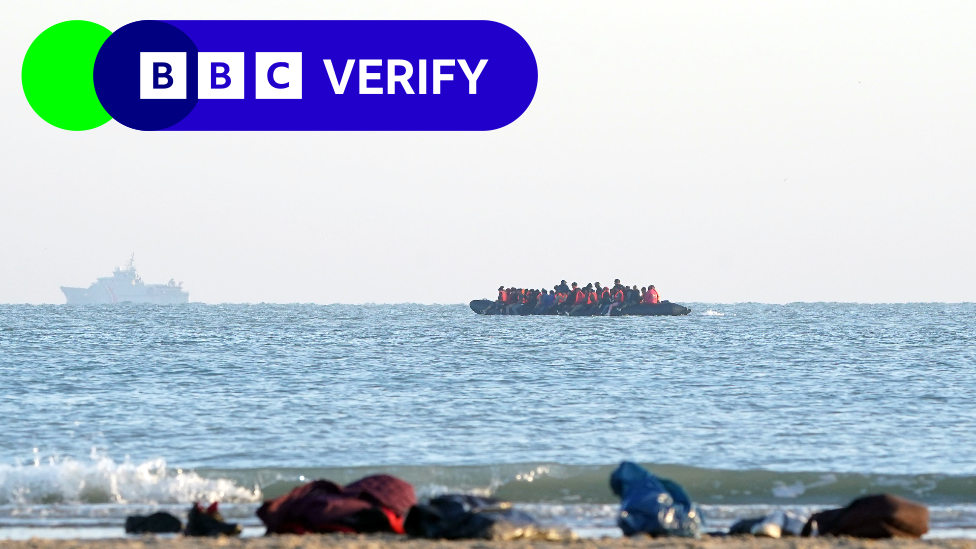
- Published
The year 2024 has already become the deadliest for migrant crossings of the English Channel, according to a United Nations agency.
So far this year, 52 people have died on the route, with the latest four deaths reported on Saturday.
The International Organization for Migration (IOM) says the deaths are “preventable” and is calling for more safe and legal ways for migrants to travel to the UK.
A UK government spokesperson said it wanted to see an end to the crossings, which “undermine our border security and put lives at risk”.
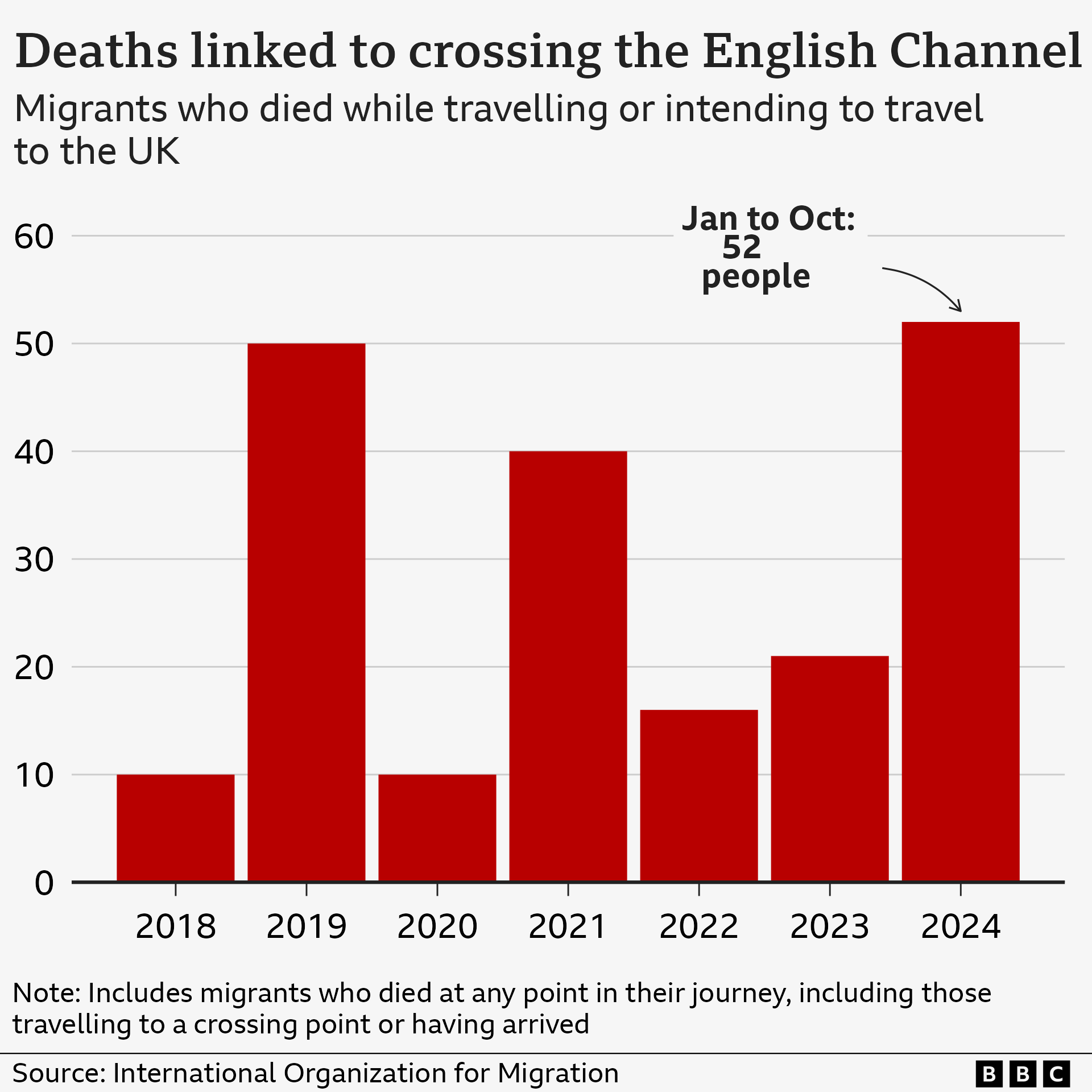
As well as deaths in the Channel, the figures include people dying on other parts of the journey to the UK, such as the 39 Vietnamese migrants who suffocated in a lorry trailer in 2019.
Dr Peter Walsh, senior researcher at University of Oxford's Migration Observatory, told BBC News the route appeared to have become more deadly since 2022, with more deaths despite fewer crossings.
And since the UK began collecting data on crossings, there had been more travelling per boat.
In 2019, there were 11 people per boat, according to Home Office figures.
This year, the average was 53.
“Part of this can be explained by smugglers using bigger boats - but evidence suggests smugglers are packing each boat with more and more people,” Dr Walsh said.
"This increases the risk for people on board."
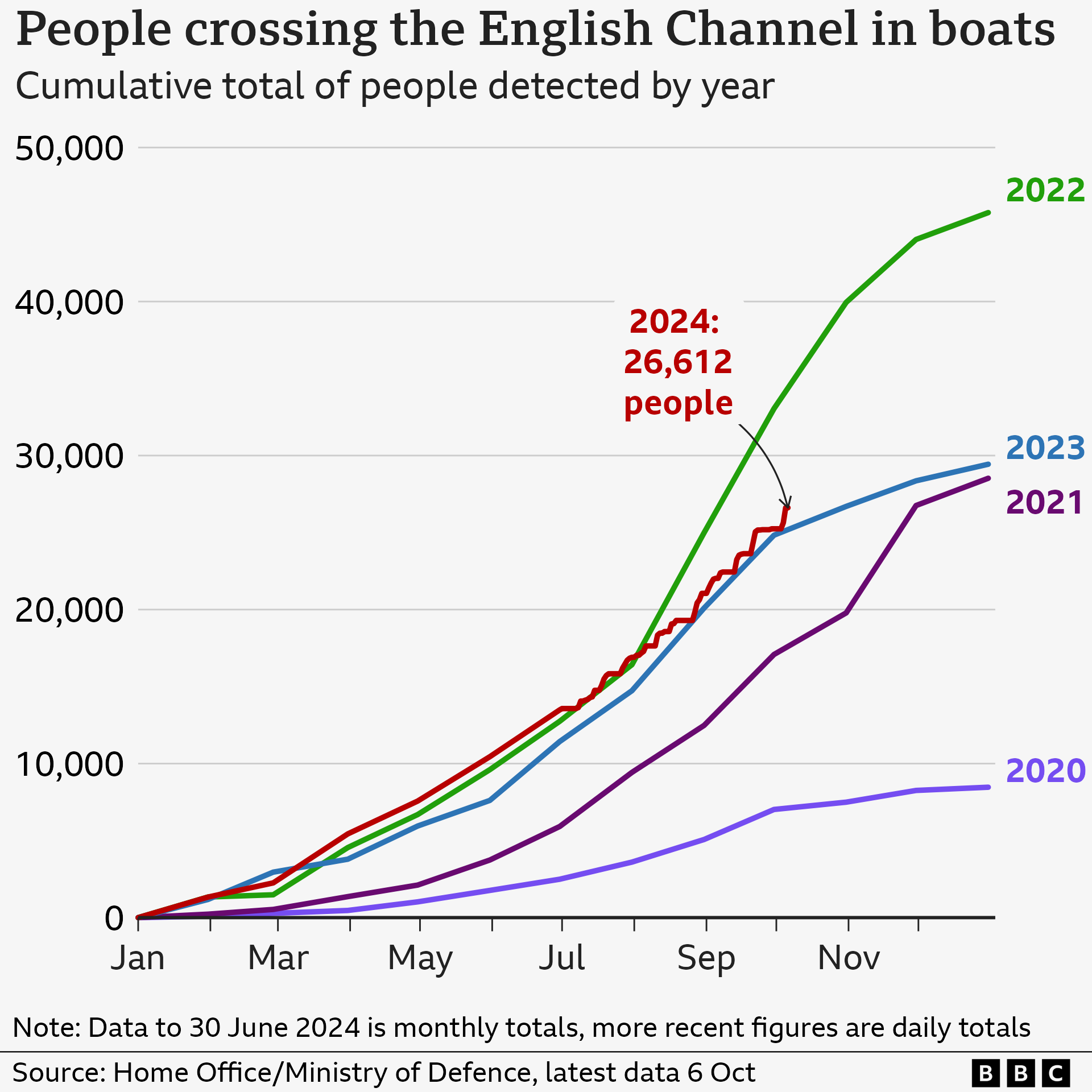
A Home Office spokesperson said the gangs arranging the transport "only care about profit" - and the more recent crossings had seen "more people crammed into flimsy and dangerous boats".
This year, drowning is the most common cause of death, accounting for 32 people, according to the IOM figures.
Deaths linked to “harsh environmental conditions / lack of adequate shelter, food, water et cetera”, which refers to those who died from conditions like hypothermia, dehydration or exposure, are the second most common, at eight.
The others are categorised as:
accidental death (such as trampling or asphyxiation due to overcrowding) - 4
vehicle accident or hazardous transport (such as traffic accidents) - 3
sickness or lack of adequate healthcare - 2
mixed or unknown - 2
violence - 1
The IOM began tracking the fatalities in 2014, as part of its global “missing migrants” project.
The IOM’s UK representative, Christa Rottensteiner, said: “These deaths are preventable - more safe and regular routes are urgently needed to prevent further tragedies, while also addressing the root causes of irregular migration."
So far this year, more than 26,600 people have crossed to the UK in small boats - but separate figures from France and Belgium suggest more than 40,000 attempts were made.
- Published20 September 2024
